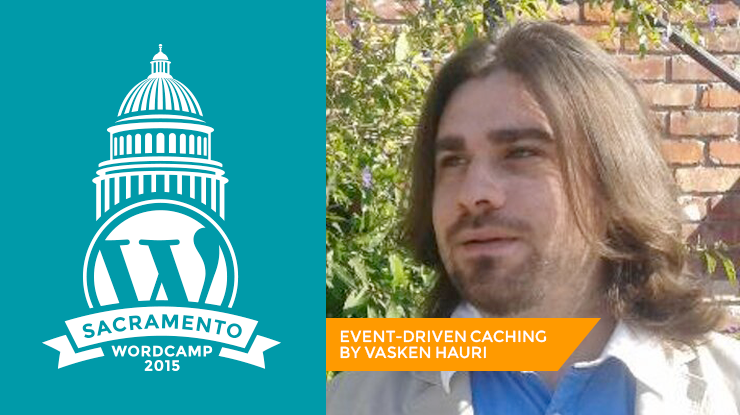
Get To Know Vasken Hauri
Vasken’s 15 years of technology leadership and experience working in both the public and private sectors have brought him most recently to 10up, a leading WordPress engineering and design firm, where he mentors a team of 80+ engineers.
Before learning about WordPress in 2007, Vasken worked at Plymouth State University in New Hampshire, in several roles ranging from desktop support to systems administration, and occasionally, adjunct faculty member.
In November of 2010, Vasken joined GigaOM, a leading technology news and research online publication, as a WordPress developer working remotely from New Hampshire. Upon moving to the Bay Area in mid-2012, he assumed the role of a team leader within GigaOM’s rapidly growing product development group, a position he held until joining the team at 10up in February of 2013.
Vasken enjoys creating natural, consistent user experiences that enhance and promote interactivity through simplicity. As a developer, one of Vasken’s strengths is his ability to communicate highly technical concepts in a clear, non-technical way in order to build understanding between various project stakeholders. This, along with significant experience across several technology sectors, has allowed him to lead teams and engineer successful projects within organizations ranging from small, independent businesses to public universities to online publications with millions of unique visitors each month.
A strong believer in open source technologies, Vasken has spoken and hosted panels at numerous WordCamp, NERCOMP, and EDUCAUSE events, on subjects ranging from Green Computing to WordPress-based centralized authentication systems. He currently holds a Bachelor of Arts in German Studies from Haverford College and a Master’s Degree in Business Administration from Plymouth State University, where he was also an adjunct faculty member in the Computer Science and Languages and Linguistics Departments.
When he’s not testing cache performance or planning projects, Vasken enjoys spending time with his wife, hiking with his dogs in the Bay Area’s many beautiful nature parks, and as a recent California transplant, is once again trying to find a good group of musicians to jam with in yet another new city.
We’re thrilled Vasken will be speaking at WordCamp Sacramento 2015 on better living through event-driven caching.
Speaker Q&A With Vasken
Why do you think event-driven caching is important?
In my session “Better Living through Event-Driven Caching,” we’ll be focusing on an incredibly important, yet often overlooked part of WordPress: custom caching. Caching is often overlooked when it comes to custom WordPress code—sometimes it’s assumed that a caching plugin will do all the heavy lifting, or that a site simply isn’t large enough to warrant spending the extra time. Caching is also a topic that can be shrouded in mystery, which I think causes a lot of folks to avoid it altogether. The truth is that, with a solid basic understanding of how caching works in WordPress (it’s actually not that bad!), you can write much faster, user-friendly code that will cause noticeable improvement in the experience of anyone using your plugin or custom code.
What is your history or experience with caching?
As VP of Engineering at 10up, I’m lucky enough to get a chance to work with some of the largest-scale WordPress sites in the world.
For these clients, it’s paramount that we provide a seamless and fast-loading experience, not only for site visitors, but also for the large editorial teams working in the competitive and time-sensitive world of online journalism. Since these sites often have significant content archives, using and updating cache intelligently and efficiently is a powerful an critical part of how we are able to deliver for our clients.
How did you get started with WordPress? Why WordPress?
I first started using WordPress back in 2007 when a friend of mine recommended I start a blog. I stayed with it because of the ease of use it offered, even in early stages, and for its ability to be customized to meet my ever-changing, expanding needs for an online publishing tool. With the addition of custom post types, the possibility of using WordPress as a full-fledged CMS became a reality, and I’ve been building sites with it ever since.
What is your favorite thing about WordPress?
The commitment to backwards compatibility. A lot of open source projects lack this commitment, and some even seem to embrace the latest development craze or code library, with no regard for what a breaking update will mean for a global and diverse user base that ranges from hobbyists to large enterprises. WordPress’ core team does a great job of incorporating important and lasting improvements in development best practice, while making sure that the software continues to work with older plugins and custom code.
Can you share a couple WordPress plugins that you love or recommend?
The Debug Bar plugin (and its many associated extensions) is an invaluable tool for debugging code or improving your site’s performance. I highly recommend becoming familiar with it and using it for all troubleshooting.
Edit Flow is another awesome plugin that adds customizable editing workflows to your site. It goes way beyond what you can do with normal user roles and post drafts, and it makes creating, editing, and publishing great content easier for editorial teams large and small.
Resources or recommendations?
A ton of collaborative effort goes into maintaining 10up’s Engineering Best Practices, and they make a great resource for up-to-date standards on everything from PHP syntax and formatting to recommended workflows for working with version control in a team environment. For those just starting out exploring the customization that is possible with WordPress, I highly recommend finding a low-cost host and running your own test site to play around with code in a safe environment that encourages experimentation.
Check Out The Speakers
WordCamp Sacramento 2015 is bringing you an awesome line up of speakers from not only our greater Sacramento region, but throughout California and beyond. Check out our speakers page to see the 2015 WordCamp Sacramento Speakers, and be sure to follow them on Twitter.